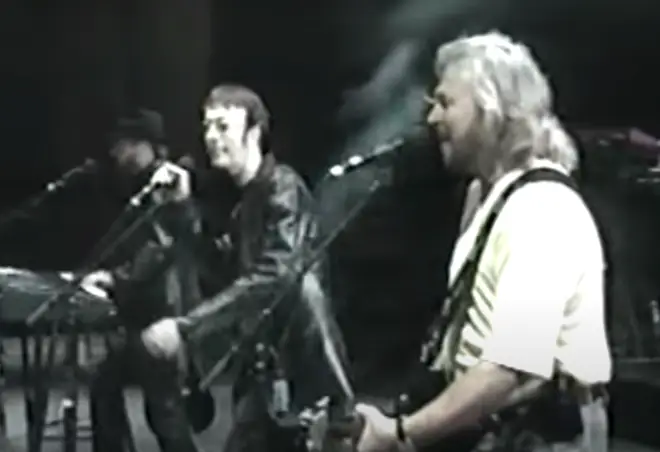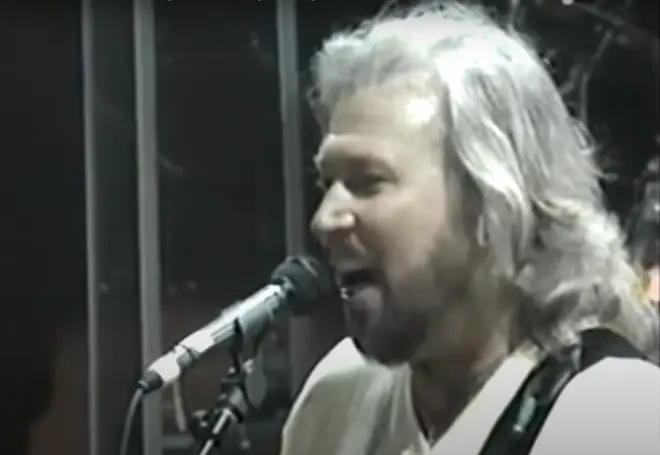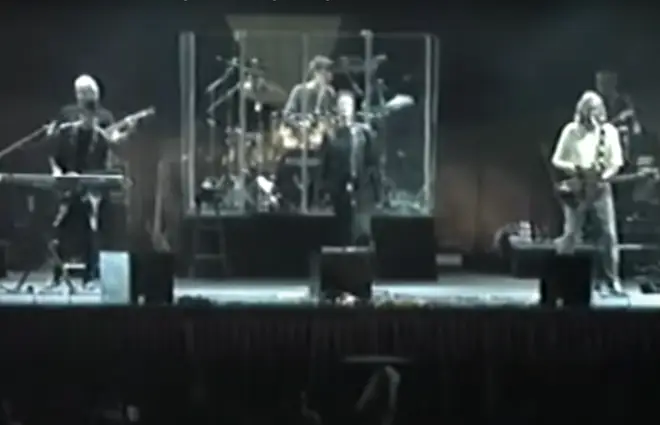Bee Gees: The final known footage of Maurice, Robin, and Barry Gibb singing together in 2001 is nothing short of breathtaking
On June 17, 2001, under a sky lit by stadium lights and roaring crowds, Barry, Robin, and Maurice Gibb delivered a transcendent rendition of “You Should Be Dancing” at Dodger Stadium in Los Angeles. That night’s performance has since taken on an almost mythical status, for it stands as the final filmed moment of the Bee Gees performing live together. Every chord, every harmony, every move the brothers made that evening carries the weight of history and the poignancy of an ending era.
At the time, few in attendance realized they were witnessing history in the making. The Bee Gees’ appearance on day two of the 2001 Wango Tango Festival would later be recognized as the last occasion Barry, Robin, and Maurice Gibb were captured together on camera. In retrospect, this performance resonates even more profoundly, especially following Maurice’s tragic passing just two years later, transforming an already electrifying show into a poignant farewell.
Headlining the festival’s second day, the Bee Gees crafted a thirteen-song set that eclipsed the shorter slots allotted to other major acts. While bands like Aerosmith were limited to only a handful of songs, the Gibb brothers showcased the full breadth of their career, moving seamlessly from early ballads to disco-era anthems. Their commanding stage presence and tight harmonies reminded everyone why the trio remained one of the most enduring acts in pop music history.
The climax of their set came as the opening riffs of “You Should Be Dancing” rang out, synchronized with a breathtaking fireworks display overhead. The interplay of pyrotechnics and music elevated the performance to an almost cinematic experience. Festival-goers later recalled that, despite anticipation building all night, nothing could prepare them for the tsunami of energy that flooded Dodger Stadium once the Bee Gees took their final bow of the evening.



Jim Wells, a lifelong fan who witnessed the show firsthand, described the audience as an eclectic mix of generations, predominantly teenagers, whose enthusiasm defied their youthful age. He noted that the crowd’s reaction was so overwhelming that it seemed as if they sensed the evening’s unique significance even before the Bee Gees began. That shared energy between performers and fans created an electric synergy that remains etched in Wells’ memory.
The trio’s set kicked off with the title track from their then-current album, moving swiftly through beloved favorites like “To Love Somebody,” “Massachusetts,” and “I Started A Joke.” Each song was greeted with fervent applause, setting the stage for the latter half of the show, which featured disco-era essentials that would forever define the Bee Gees’ legacy.
“The applause was nonstop,” Wells recalled. “But it was when they launched into ‘Night Fever,’ ‘More Than a Woman,’ and ‘Jive Talkin’ that the stadium truly came alive.” Fans rose to their feet, dancing shoulder to shoulder, their voices and movements merging into a single, joyous chorus. It was a visceral reminder of the Bee Gees’ unparalleled ability to unite people through the universal language of music.
As the final chords of “You Should Be Dancing” faded, Barry, Robin, and Maurice lined up to thank the audience, while another burst of fireworks lit the sky in celebration. The crowd’s thunderous roar of approval served as a fitting farewell to a performance that would become a defining moment in the group’s storied career.
Although this Pasadena performance wasn’t technically the Bee Gees’ last live appearance as a trio, it remains the final one captured on film. On February 23, 2002, they played their actual last show at Miami’s Love and Hope Ball, but no visual record exists. Consequently, the Dodger Stadium concert has become the enduring cinematic testament to the brothers’ live synergy.
In that unrecorded final show, Barry and Maurice opened with “Words” before paying homage to their musical heroes by covering songs from the Beatles, Elvis Presley, Roy Orbison, and the Everly Brothers. Robin later joined them for a selection of Bee Gees classics, ensuring that even their ultimate farewell was steeped in the spirit of camaraderie and musical reverence.
Following those poignant final performances, Barry and Robin reunited onstage in 2006 at the Love and Hope Ball in Miami Beach. Later that same year, they opened the Prince’s Trust 30th Anniversary concert at the Tower of London, once again reminding audiences worldwide of their enduring bond and the timelessness of their harmonies.
Their last public duet occurred in 2010 during the finale of *American Idol,* where Barry and Robin delivered an emotionally charged rendition of “How Deep Is Your Love.” The performance drew tears and standing ovations alike, serving as a heartfelt coda to decades of musical partnership and familial unity.
Tragedy struck shortly thereafter: Maurice succumbed to complications from a twisted intestine in January 2003 at age 53. Robin lost his battle with cancer in 2012 at 62, and their youngest brother, Andy, died in 1988 at only 30. Barry, as the last surviving Gibb brother, has spoken candidly about the profound loss of his siblings and the void left in the world of music.
In a 2012 interview on Australia’s *Sunday Night*, Barry tearfully reflected on being the “last man standing.” He admitted he struggled to comprehend his survival as the eldest brother, lamenting that only the three of them could truly understand the depth of their connection. He described their bond as a single shared dream—a unity he cherishes and deeply misses.





